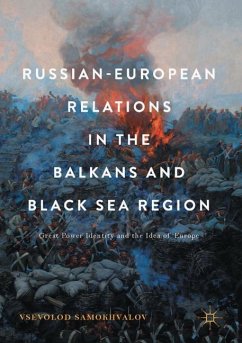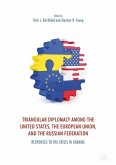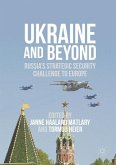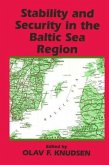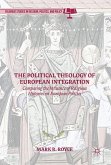This book provides a detailed analysis of Russia's 'great power identity' and the role of Europe in forming this identity. 'Great power identity' implies an expansionist foreign policy, and yet this does not explain all the complexities of the Russian state. For instance, it cannot explain why Russia decided to take over Crimea, but provided only limited support to break-away regions in Eastern Ukraine. Moreover, if Russia is in geo-economic competition with Europe, why has no serious conflict erupted between Moscow and other post-Soviet states which developed closer ties with the EU? Finally, why does Putin maintain relationships with the European countries that imposed tough economic sanctions on Russia? Vsevolod Samokhvalov provides a more nuanced understanding of Russia's great power identity by drawing on his experience in regional diplomacy and research and applying a constructivist methodology. The book will appeal to students and scholars of international relations, in particular Russian-European relations, Russian foreign policy and Russian studies.
"With this book, Vsevolod Samokhvalov makes an important contribution to the literature. The rich empirical material and the depth of analysis represent an important added value of the study. This book will be without doubt an interesting and revealing reading for scholars of history, political science, and literature." (Katsiaryna Yakouchyk, Democratization, Vol. 26 (2), 2019)
"VSEVOLOD SAMOKHVALOV'S BOOK OFFERS A USEFUL IN-DEPTH ANALYSIS of Russia's evolving great power identity and representations of Europe, with an empirical focus on European-Russian interaction in the Balkans and the Black Sea region. ... Samokhvalov's book provides an essential and balanced contribution to understanding European-Russian relations through a solid theoretical approach and impressively vast empirical work." (Marco-Siddi, Europe-Asia Studies, Vol. 71 (2), 2019)
"The book adds to a growing body of empirically grounded, interpretivist research and significantly benefits from its author's ability to explain complex processes in clear language. ... The book will appeal to the students of Russian foreign policy, Russian-European relations and the Balkans-Black Sea area. It will also be of interest to anyone engaged in comparative and theoretical research of national and international identities." (Mikhail Molchanov, International Affairs, Vol.94 (3), 2018)
"The book not only provides an in-depth analysis of Russia's national identity but also explores the very term 'identity.' ... I would highly recommend this book-and not only to experts, academics, and politicians. Everyone who has an interest in the subject of East-West relations should pay attention to this publication." (Ilya Yablokov, The Russian Review, Vol. 77 (2), April, 2018)
"The book will appeal to the students of Russian foreign policy, Russian-European relations and the Balkans-Black Sea area. It will also be of interest to anyone engaged in comparative and theoretical research of national and international identities." (Mikhail Molchanov, International Affairs, Vol. 94 (3), 2018)
"VSEVOLOD SAMOKHVALOV'S BOOK OFFERS A USEFUL IN-DEPTH ANALYSIS of Russia's evolving great power identity and representations of Europe, with an empirical focus on European-Russian interaction in the Balkans and the Black Sea region. ... Samokhvalov's book provides an essential and balanced contribution to understanding European-Russian relations through a solid theoretical approach and impressively vast empirical work." (Marco-Siddi, Europe-Asia Studies, Vol. 71 (2), 2019)
"The book adds to a growing body of empirically grounded, interpretivist research and significantly benefits from its author's ability to explain complex processes in clear language. ... The book will appeal to the students of Russian foreign policy, Russian-European relations and the Balkans-Black Sea area. It will also be of interest to anyone engaged in comparative and theoretical research of national and international identities." (Mikhail Molchanov, International Affairs, Vol.94 (3), 2018)
"The book not only provides an in-depth analysis of Russia's national identity but also explores the very term 'identity.' ... I would highly recommend this book-and not only to experts, academics, and politicians. Everyone who has an interest in the subject of East-West relations should pay attention to this publication." (Ilya Yablokov, The Russian Review, Vol. 77 (2), April, 2018)
"The book will appeal to the students of Russian foreign policy, Russian-European relations and the Balkans-Black Sea area. It will also be of interest to anyone engaged in comparative and theoretical research of national and international identities." (Mikhail Molchanov, International Affairs, Vol. 94 (3), 2018)

